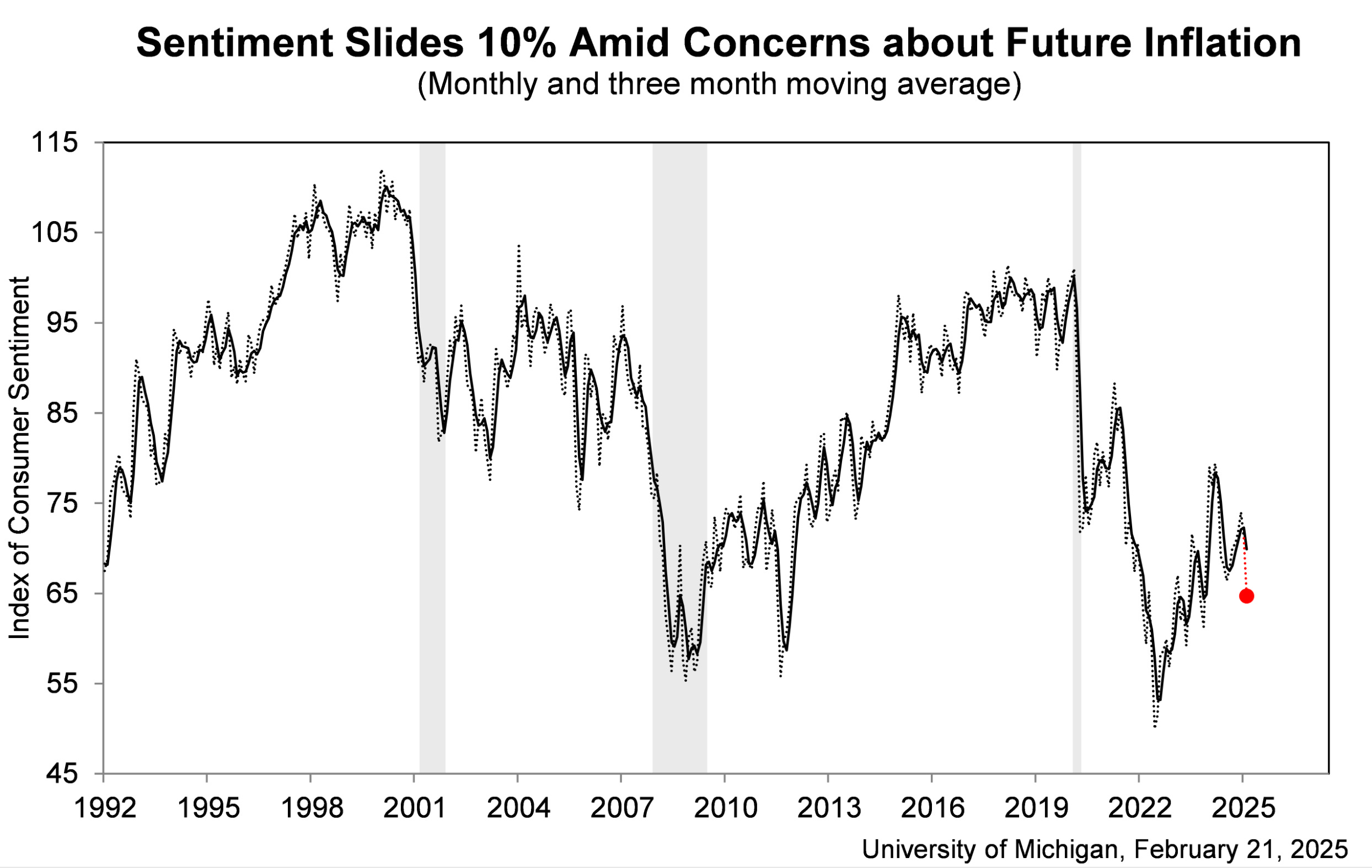
3441. DOGE is the Theranos of Cost-Cutting
Paul Krugman discusses the failures of DOGE and the declining public confidence in Donald Trump’s economic policies, highlighting issues of accountability and transparency.
your daily dose of economic commentary

Paul Krugman discusses the failures of DOGE and the declining public confidence in Donald Trump’s economic policies, highlighting issues of accountability and transparency.

Robert Vienneau discusses a complex economic model involving double-fluke cases and triple-switching in relation to profit rates and production techniques.
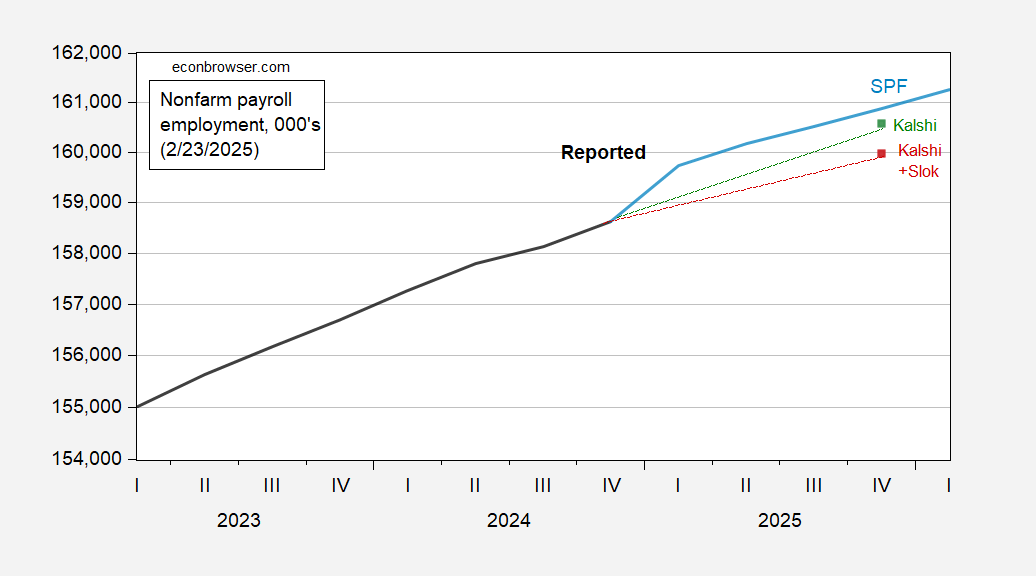
Menzie Chinn discusses the implications of federal workforce reductions and trade policy uncertainty on the macroeconomic outlook.

Miles Kimball discusses the importance of balancing excellence and righteousness, emphasizing the value of perseverance through the "learning pit" in education and personal growth.

Miles Kimball discusses the impactful legacies of Frances Perkins and Loretta Ford, highlighting their contributions to policy change and the potential for future reforms.

Miles Kimball discusses the roots of disparate outcomes among races and sexes, emphasizing systemic racism and its impact on policies and intergenerational transmission of disadvantages.
David Henderson discusses various readings on U.S. foreign policy, COVID-19 responses, and immigration welfare use in his weekly review.

Carl Quintanilla discusses the relationship between housing starts and recessions, highlighting economic indicators and forecasting models while expressing caution about predicting a recession.
Tyler Cowen discusses the complexities of the Ukraine peace deal, highlighting economic implications, political dynamics, and the potential for future aid and support.

Scott Cunningham reflects on personal growth, emotional entanglement, and the usefulness of psychological models in navigating life's complexities.
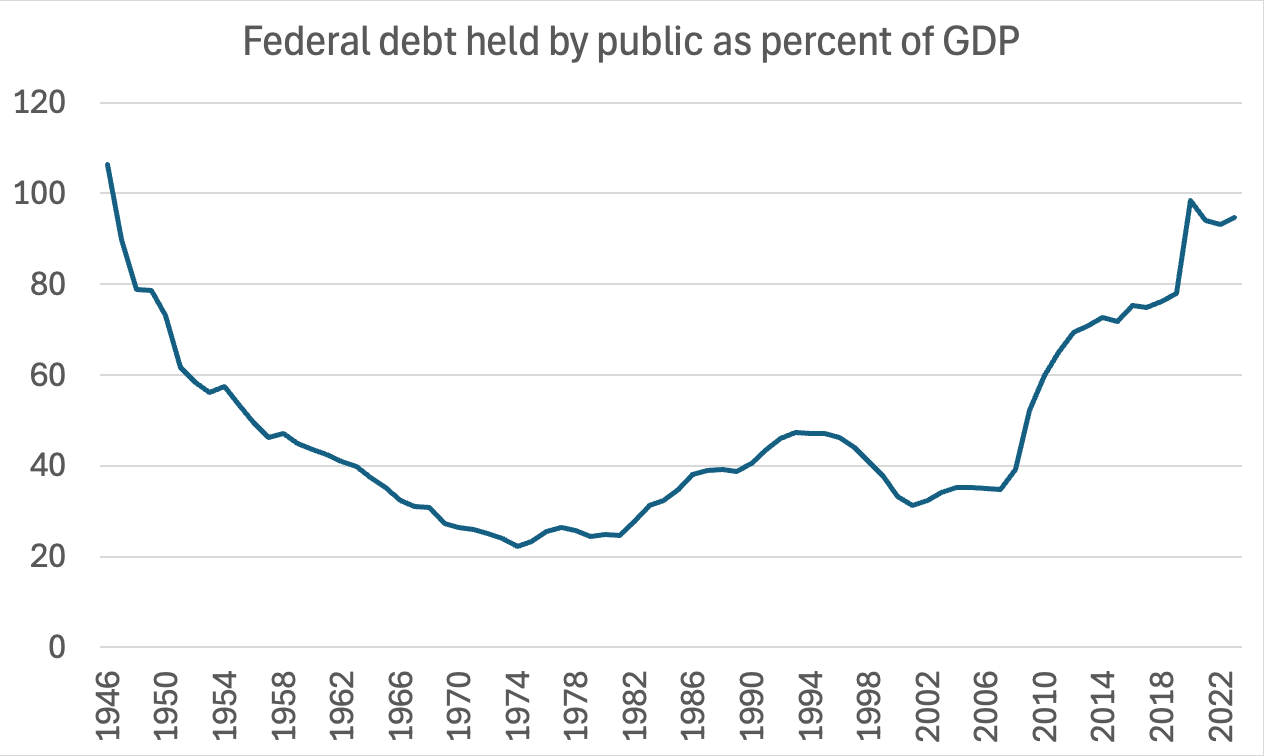
Paul Krugman discusses federal debt, its historical context, and the need for responsible political action to manage it effectively.

Noah Smith argues that dismissing Elon Musk's competence is misguided, emphasizing his exceptional organizational skills and accomplishments in technology and manufacturing.
Tyler Cowen argues that the slow adoption of AI is influenced by economic inefficiencies, regulatory bottlenecks, and human limitations in productivity.
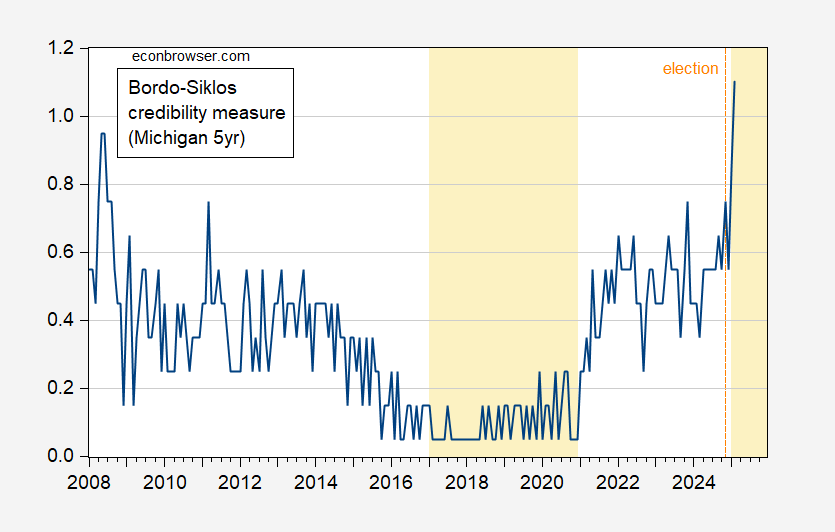
Menzie Chinn analyzes inflation expectations and credibility during Trump's administrations using survey data and economic measures.

Bill McBride discusses key economic reports and data releases scheduled for the week of February 23, 2025, including home sales and GDP estimates.
Alex Tabarrok argues that increasing FDA staff, rather than firing employees, is essential for faster drug approvals and better patient outcomes.
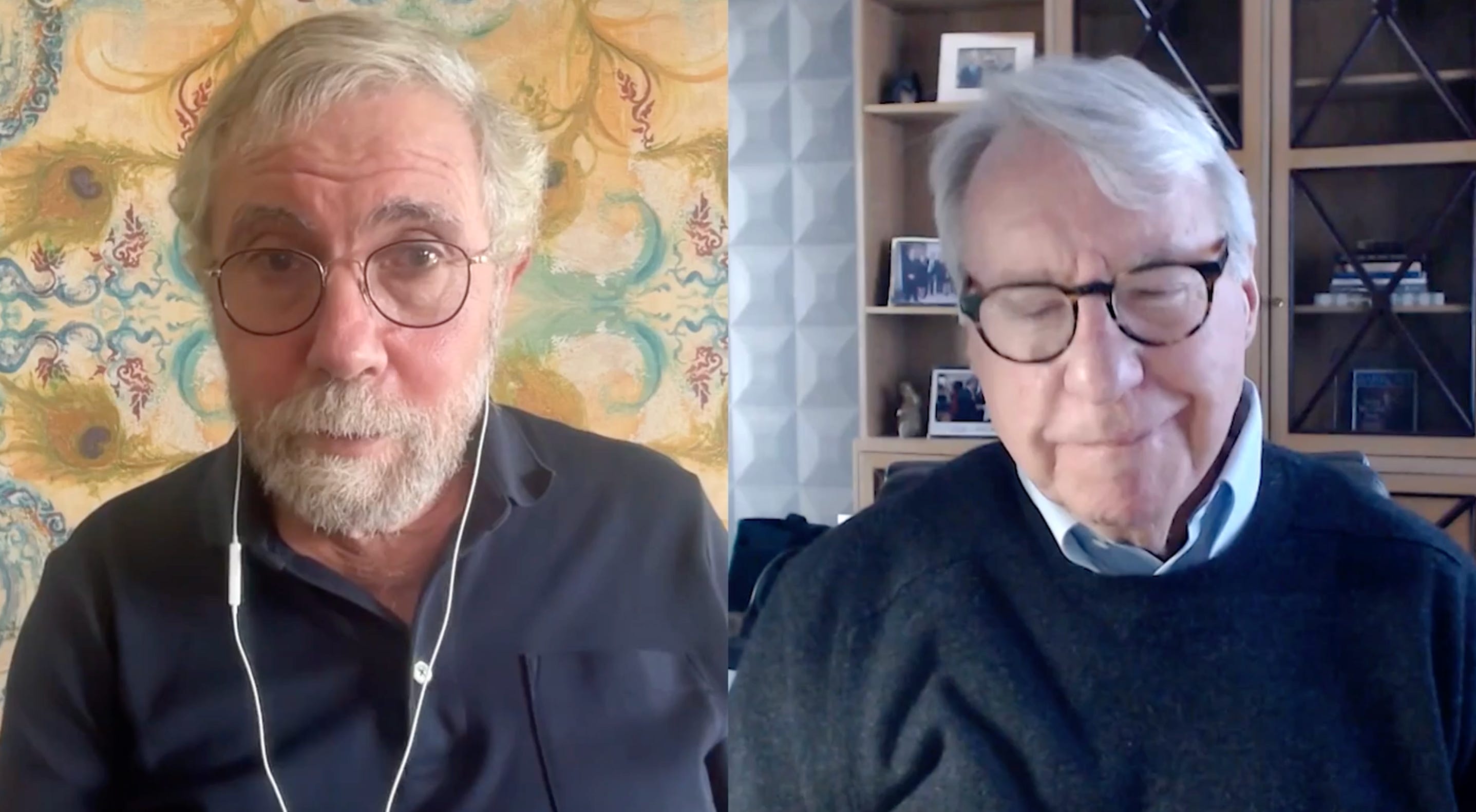
Paul Krugman discusses his conversation with Jim Chanos about market conditions and global trends, highlighting Chanos's insights and charm.
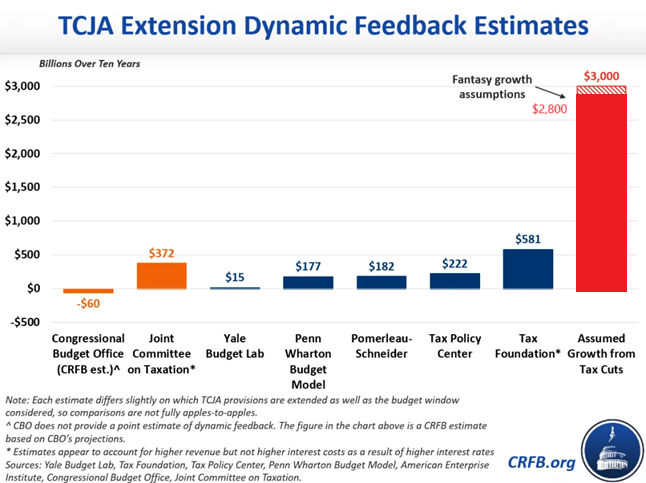
Menzie Chinn critiques the House Budget's unrealistic revenue plans and economic assumptions, highlighting potential impacts on GDP and national debt.
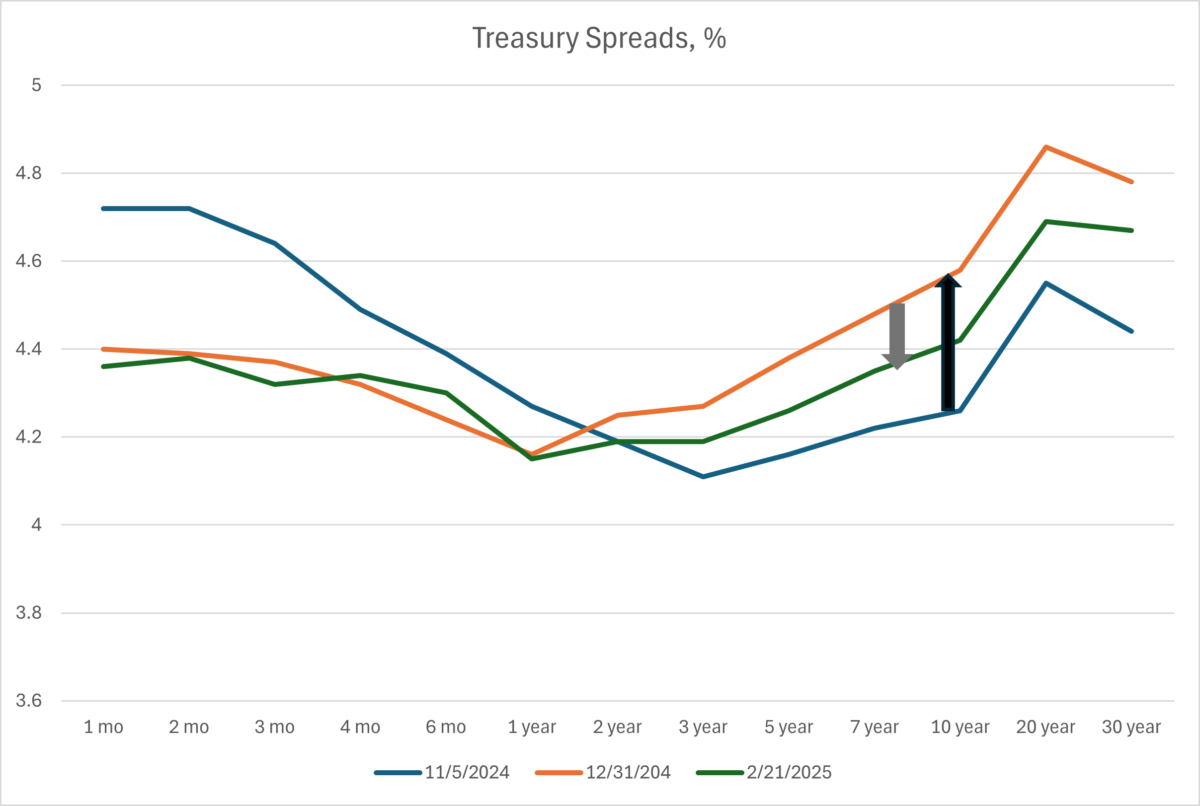
Menzie Chinn discusses recent trends in yield curves and term spreads, indicating concerns about economic growth over various time horizons.

Bill McBride discusses the decline of COVID in wastewater and its implications for hospitalizations and deaths, while noting changes in reporting requirements.